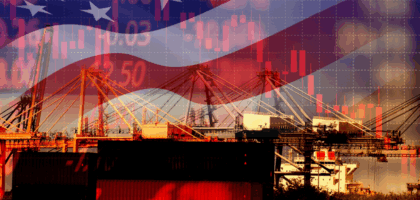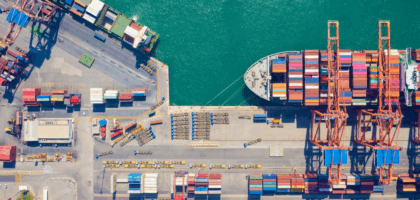“It only takes one person to ruin it for everyone else.”
This quote is used all the time, but for many different reasons other than an event that caused an enormous bottleneck in global trade and supply chains. With an estimated 90% of global goods transported by sea, exposing weaknesses in the international system was bound to happen eventually.
Last week, a ship called the Ever Given completely blocked the Suez Canal—a major artery linking East and West through the Mediterranean and Red Seas. The grounding of this one ship literally halted BILLIONS of dollars a day in maritime commerce, as over 300 other vessels idled waiting for their turn to get through the canal.
Although this event was completely unforeseen, there are some lessons that we can take away from this mishap.
Alternative modes of transporting goods are available, but will cost more.
The Suez Canal cuts out roughly 10 days of transport and reduces delays and costs that come with a ship being routed through the Cape of Good Hope in Africa. With ship capacity already being an issue prior to the canal blockage, other modes of transportation are available despite higher costs.
Much of the transportation method you choose depends on where you’re shipping from, the distance, the volume, and the weight of the goods. Many companies plan ahead of time and select more cost-efficient modes, such as seaborne trade. This has ultimately caused the surge in port delays we have been seeing for weeks now. For more urgent matters, such as out-of-stock raw materials for production, or spare parts for maintenance or repair, shipping by air would alleviate the stress of wondering where your freight is and how long it will take to unload at the destination port.
As ships get larger, relying on narrow shipping routes will become increasingly risky.
Although it’s not the best scenario, it could have been much worse. The Ever Given is actually too wide to transit the canal, and despite the effects it has caused (and the ripple effects it will cause), it’s probably best that it became stuck during off-peak season for maritime shipping. Could you imagine if this event occurred in October or November? A disruption in the global supply chain during the holiday season would have had a far greater impact on the economy and overall trade.
Security and safety should always be at the forefront.
As ship’s get larger and more complex, having a reliance on previously constructed narrow shipping routes could become risky…maybe even too risky. The Suez Canal is a major artery to world trade, and the incident that occurred could have an impact on long-term implications, including maliciously triggered or targeted events to cause widespread impacts on global and local trade.
Despite the fact that accidents are much more likely than security threats, such as terrorism, they are much less discussed. In many cases, however, the actual implications of safety and security incidents are very similar. Better awareness of all types of threats is vital in this area as well because safety threats are largely static while security threats are much more dynamic.
Before making a decision on your logistics opportunities and set shipping methods, talk to the experts at ICAT. We stay at the forefront of all major incidents and trends that could impact your supply chain. We’ll work directly with you and your team to come up with the best solution for transporting your valuable goods.



